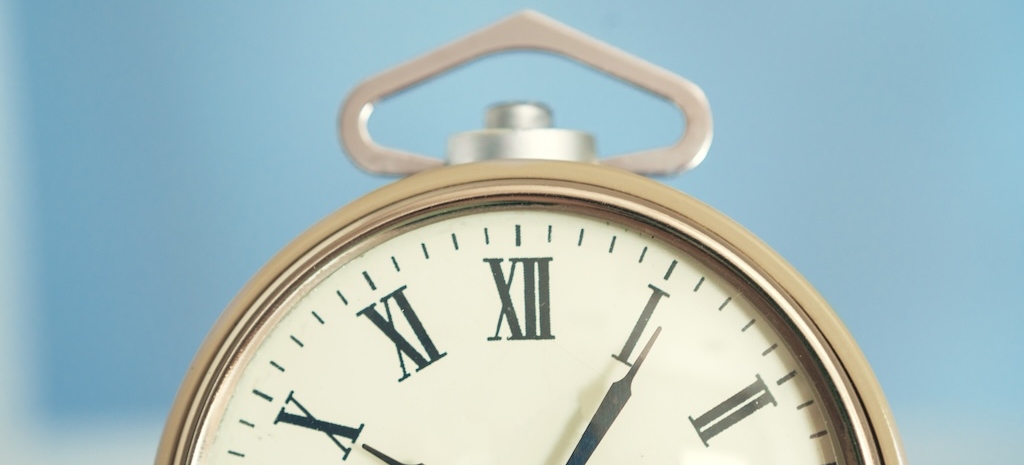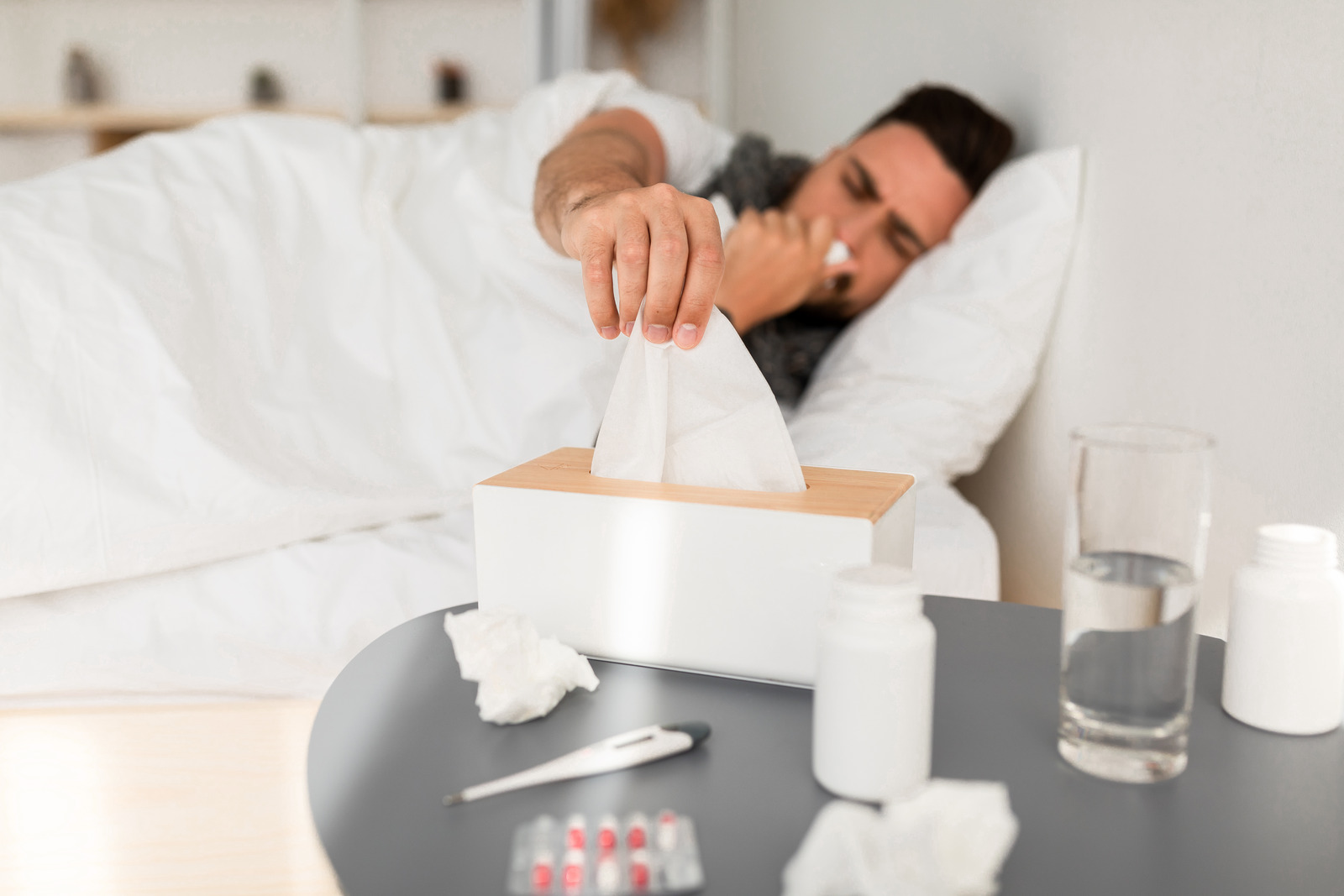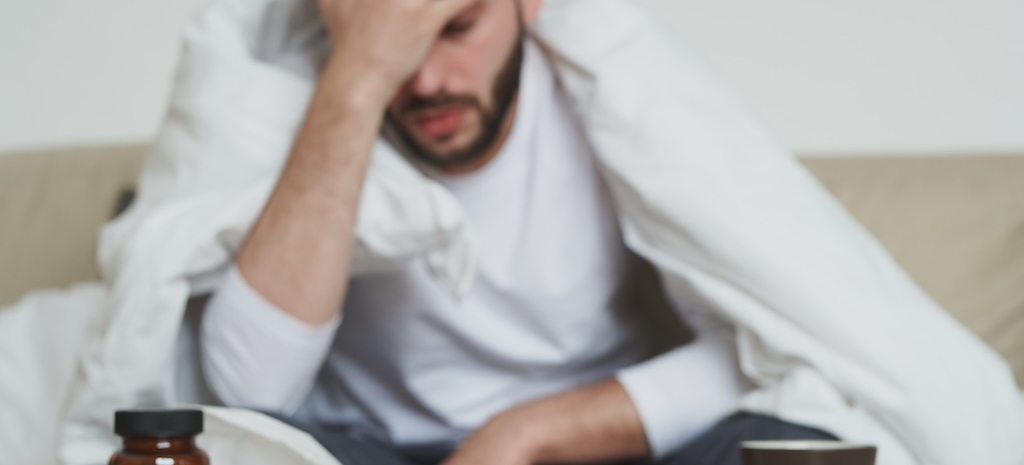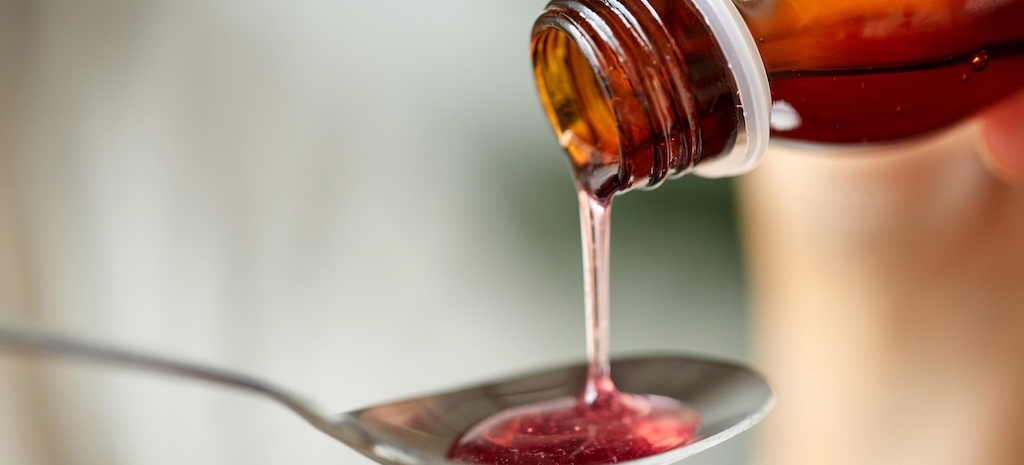NyQuil is an over-the-counter (OTC) medication used to treat symptoms of flu, colds, and other respiratory illnesses, including congestion, sneezing, and coughing. NyQuil has several active ingredients with different durations, typically lasting up to 6 hours.[1]
Learn more about NyQuil, how long its effects last, and how to use it safely.
What Is NyQuil?
NyQuil is an over-the-counter (OTC) medication marketed as a nighttime remedy for colds, flu, and other respiratory symptoms such as congestion, sneezing, and coughing. It is available in both liquid syrup and liquid capsules.
NyQuil is typically formulated with a combination of:
- Acetaminophen – Provides pain relief and reduces fever.
- Dextromethorphan – Suppresses coughing.
- Doxylamine succinate – An antihistamine that helps with runny nose and sneezing and induces drowsiness.
How Does NyQuil Work?
Each active ingredient in NyQuil has a different function and duration in the body:
- Acetaminophen: Provides pain relief for about 4 to 6 hours.
- Dextromethorphan: Reduces cough symptoms for about 5 to 6 hours.
- Doxylamine succinate: Causes drowsiness and can last up to 8 hours.
NyQuil is specifically designed for nighttime use, as it contains an antihistamine that induces drowsiness. DayQuil, its daytime counterpart, has similar ingredients but omits the antihistamine to avoid sleepiness.
How Long Does NyQuil Last?

Most people feel the effects of NyQuil within 30 minutes of ingestion. It lasts about 6 hours and is ideal for overnight relief from cold and flu symptoms.[1]
While NyQuil can last 4 to 6 hours, it can vary. People with slower metabolisms may need longer than 6 hours for the drug to be eliminated from the body. People with faster metabolisms may eliminate it in a much shorter timeframe.
Recommended NyQuil Dosage
You should always follow the instructions on the product label or from your doctor, but the standard dosages of NyQuil include:[2]
- NyQuil syrup: 30 milliliters or two tablespoons every 6 hours as needed.
- NyQuil liquid caps: 2 capsules by mouth every 6 hours as necessary.
Important Dosage Guidelines:
- Do not take more than four doses of NyQuil in 24 hours.
- Avoid exceeding 4,000 mg of acetaminophen per day, as this can cause liver damage.
- If taking multiple medications, ensure they do not contain the same active ingredients to prevent an accidental overdose.
- Individuals with liver disease or pre-existing conditions should consult a healthcare provider before taking NyQuil.
Is NyQuil Safe For Children?
NyQuil is not recommended for children under 6 years old. Instead, manufacturers produce Children’s NyQuil, a liquid formulation designed specifically for children over 6.
Essential Guidelines for Children:
- Always use the pediatric version rather than regular NyQuil.
- Doses are based on the child’s age and weight—refer to the package instructions.
- Never give adult-strength NyQuil to children, as the ingredients can be too strong and pose health risks.
- Consult a pediatrician before giving any OTC cold medicine to children.
NyQuil Side Effects and Risks
The side effects of NyQuil are typically mild, but they may include:[3]
- Sedation
- Drowsiness
- Dry mouth or throat
- Lightheadedness
- Upset stomach
- Nausea
- Blurred vision
- Difficulty urinating
Avoid drinking alcohol while taking NyQuil, as this can increase the risk of liver damage and amplify the drowsiness you may experience. Like sedatives, NyQuil can impair your alertness and coordination, so you shouldn’t drive or do other activities that require focus while on the medication.
Who Should Avoid NyQuil?
People with certain medical conditions shouldn’t take NyQuil as it can cause complications. These conditions include:[3]
- Liver or kidney disorders
- Asthma
- Diabetes
- High blood pressure
- Thyroid disorders
- Glaucoma
- Prostate enlargement
NyQuil, Alcohol, and Other Medications
Avoid consuming alcohol while taking NyQuil, as this can:
- Increase the risk of liver damage (especially due to acetaminophen).
- Amplify drowsiness and sedation, leading to impaired coordination and increased accident risk.
NyQuil can also interact with certain medications, including sedatives, tranquilizers, and MAO inhibitors (antidepressants). Mixing NyQuil with antidepressants can cause serotonin syndrome, a life-threatening condition that leads to an accumulation of serotonin. The symptoms of serotonin syndrome can include increased body temperature, nausea and vomiting, fast heartbeat, and hallucinations, among others.[4]
Can You Overdose on NyQuil?

Yes, it’s possible to overdose on NyQuil. If you exceed the recommended dosage, you can experience confusion, difficulty breathing, and severe drowsiness. It’s essential to seek medical attention as soon as possible if you suspect you’re experiencing a NyQuil overdose or someone else is.
What to Do If You Took Too Much NyQuil
Taking more than the recommended dose of NyQuil can lead to serious side effects and potential overdose.
Signs of NyQuil Overdose:
- Severe drowsiness or confusion
- Difficulty breathing
- Liver damage (from excessive acetaminophen intake)
If you suspect an overdose:
- Call Poison Control immediately at 800-222-1222.
- Seek emergency medical attention if severe symptoms occur.
Is NyQuil Addictive?
NyQuil isn’t addictive if you use it according to the instructions. Misusing NyQuil can cause dependence, which is when your body gets used to having a drug. If you stop abruptly, withdrawal can occur. Dependence is part of addiction, but it’s not an addiction on its own.
People may misuse NyQuil by taking too much to get the effects or using it to treat more serious respiratory conditions, such as asthma or chronic bronchitis. NyQuil is only intended to treat short-term symptoms of cold and flu, not chronic respiratory illnesses.
Some people take NyQuil for recreational purposes to experience its sedative effects, while others may take it as a sleep aid. NyQuil can cause drowsiness that helps with sleep, but it’s not a drug intended for insomnia and shouldn’t be used as a sleep aid.
If you take NyQuil to sleep, you can become dependent on it. When you stop, you may experience withdrawal symptoms like anxiety, cravings, restlessness, stomach pain, depression, and rebound insomnia.
NyQuil (Dextromethorphan) Misuse and Signs of Dependence

While NyQuil is not considered habit-forming when used correctly, some people misuse it for its sedative or euphoric effects, leading to potential dependence. This is especially true for dextromethorphan (DXM), which, in high doses, can cause hallucinations and dissociation.
Misusing NyQuil for its dextromethorphan content can cause serious effects similar to those of PCP, a dangerous hallucinogen.[5] This drug impairs coordination and judgment. If it’s combined with other medications, such as alcohol, acetaminophen, or antidepressants, it can cause severe liver damage, heart attacks, seizures, and possible death.
Signs of NyQuil Misuse Include:
- Taking NyQuil in larger doses or more frequently than recommended.
- Use NyQuil regularly to aid in sleeping, even without cold or flu symptoms.
- Experiencing withdrawal symptoms such as restlessness, cravings, or irritability when not using NyQuil.
- Combining NyQuil with other substances, such as alcohol, to enhance its effects.
- Using NyQuil recreationally to experience mind-altering effects.
If you or someone you know is misusing NyQuil, seeking medical guidance is essential. Dependence on OTC medications can be treated through professional support, including medical detox, behavioral therapy, and addiction counseling.
Contact Last Resort Recovery at (512) 750-6750 today to learn more about our treatment programs for men in Austin, Texas.
Treating NyQuil Addiction
While this may not seem like an addiction in the conventional sense, it’s no less uncomfortable. The symptoms of withdrawal can cause people to continue taking NyQuil to sleep and relieve the unpleasant symptoms, leading to a cycle of misuse and withdrawal.
If you’re experiencing NyQuil dependence or addiction, help is available. You may benefit from medical detox to manage the symptoms of withdrawal, address insomnia, and prevent relapse. Depending on your circumstances, you may want to enter an addiction treatment program to address the psychological and emotional aspects of addiction with therapy and counseling.
Alternatives to NyQuil for Symptom Relief
If you have concerns about taking NyQuil or need additional symptom relief, here are some alternative options to consider:
At-Home Remedies:
- Stay hydrated: Drink water, herbal tea, or warm broth to soothe a sore throat and thin mucus.
- Rest: Proper sleep and minimal physical activity aid in recovery.
- Use a humidifier: Increases moisture in the air to relieve congestion.
- Saline nasal spray: Helps clear nasal passages.
- Gargle salt water: Reduces throat irritation and kills bacteria.
- Throat lozenges: Can help soothe irritation.
Seek Help for NyQuil Misuse and Addiction
Professional treatment may be necessary if you find yourself relying on NyQuil for reasons beyond its intended use. Medical detox, addiction treatment programs, and support groups can help break dependence and establish healthier sleep or symptom-management habits.
Use NyQuil Safely – Know When to Seek Help

NyQuil is a widely used OTC medication for cold and flu symptoms, providing 4 to 6 hours of relief. However, it should be used responsibly to avoid misuse and potential dependence.
To use NyQuil safely:
- Follow the recommended dosage and avoid exceeding four doses in 24 hours.
- Avoid combining NyQuil with alcohol or other medications containing similar ingredients.
- Seek medical guidance if you suspect dependence or if symptoms persist beyond 10 days.
If you or a loved one is struggling with NyQuil misuse, don’t hesitate to seek professional support. Help is available to regain control and establish healthier habits.


